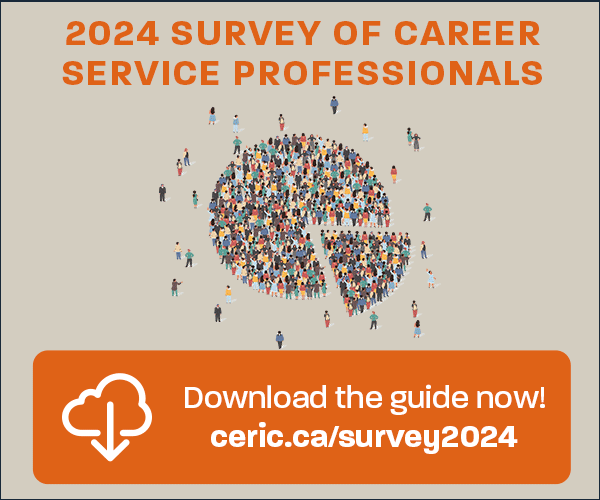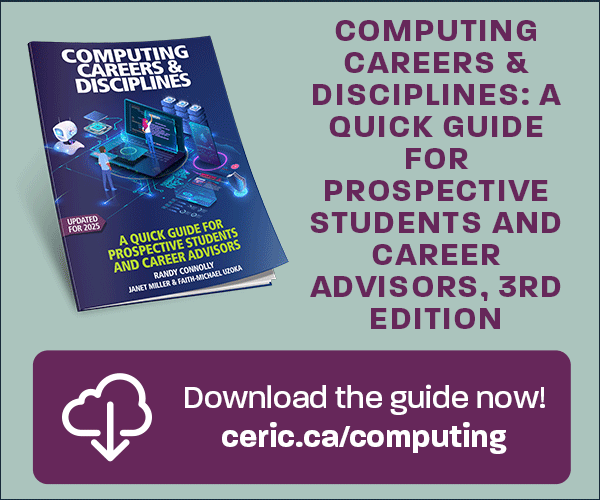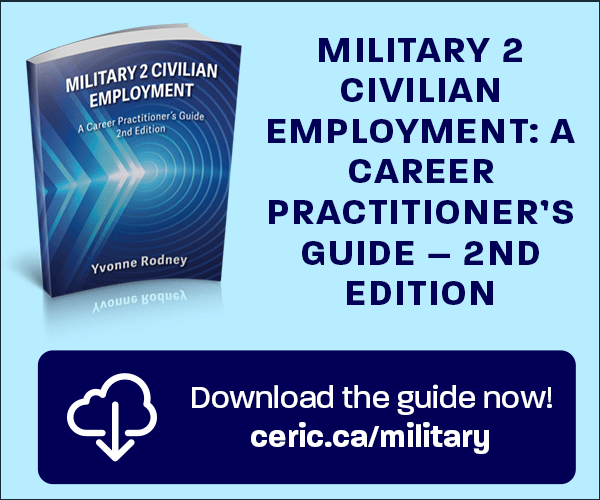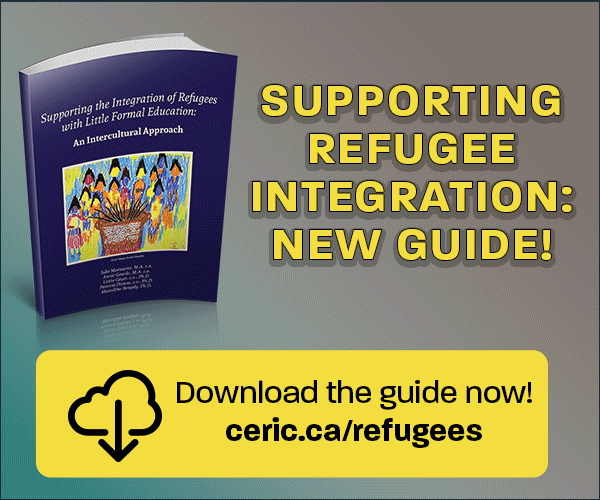The Effects of Context and Experience on the Scientific Career Choices of Canadian Adolescents
Keywords:
context, experience, scientific career, career choice, canadian, adolescentsAbstract
This study explored the differential utility of contextual and experiential factors in the prediction of scientific career aspirations. Specific propositions based on the Lent et al. ( 1994) socialcognitive model of career choice were also examined. Data were obtained from a Canadian national subgroup (n=--3,306) of adolescents (13-19 years) who participated in the National Youth and Science Fair Project Study (NYSPS). Multivariate logistic regression analyses indicated that family background, scientific learning experiences, science self-efficacy measures, outcome expectancies, and scientific interests contributed significant unique variance to the prediction of scientific career choice. Results of a final model revealed that students aspiring for a career in the sciences were more likely than their peers to be male, senior students, have higher grades in science, more interest in science, and expect their science courses to be useful to
their future career. Scientific self-efficacy and outcome expectancies were found to have direct effects on choice goals. Outcome expectancies also had an indirect effect on choice goals through scientific interests. Scientific interests had a significant direct effect on choice goals. Implications for career development/choice theory and practice arc discussed.
References
Bandura, A. (I 986). Social foundations of thought and action: A social cognitive theory. Englewood Cliffs, NJ: Prentice Hall.
Bleeker, M. M., & Jacobs, J. E. (2004). Achievement in math and science: Do mother's beliefs matter 12 years later? Journal of Educational Psychology, 96 (I), 97-I09.
Blishen, B., Carroll, W. K., & Moore, C. (1987). The 198I socioeconomic index for occupations in Canada. Canadian Review of Sociology and Anthropology. 14(4), 465-488.
Borget, M. M., & Gilroy, F. D. ( 1994). Interests and self-efficacy as predictors of mathematics/science based career choice. Psychological Reports, 75, 753-754.
Breakwell, G. M., Fife-Shaw, C., & Devereaux, J. ( 1988). Parental influence and teenagers' motivation to train for technological jobs. Journal of Occupational Psychology, 6/, 79-88.
Burkham, D. T., Lee, V. E., & Smerdon, B. A. ( 1997). Gender and science learning early in high school: Subject matter and laboratory experiences. American Educational Research Journal, 34, 297·331 .
Dawis, R. V. ( 1996). The theory of work adjustment and person-environment-correspondence counseling. In D. Brown, L. Brooks, & Associates (Eds.), Career choice
and development (3rcl ed.) (pp. 75- 120). San Francisco, CA: Jessey Bass.
Dick, T., & Rallis, S. (1991). Factors and influences on high school students' career choices. Journal for Research in Mathematics Education, 11,281-292.
Ferry, T. R., Found, N. A., & Smith, P. L. (2000). The role of family context in a social cognitive model for career-related choice behavior: A math and science perspective. Journal of Vocational Behavior. 57, 348-364.
Found, N. A., & Smith, P. L. (1996). A test of a social cognitive model for middle school students: Math and science. Journal Counselling Psychology, 43(3), 338-346.
Gadalla, T. M. (2001). Patterns of women's enrolment in university mathematics, engineering and computer science in Canada, 1972- 1995. The Canadian Journal of
Higher Education, 31( I), 1-21.
Glasgow, K. L., Dornbusch, S. M., Troyer, L., Steinberg, L., & Ritter, P. L. (1997). Parenting styles, adolescents' attributes, and educational outcomes in nine heterogeneous high schools. Child Development, 68, 507-529.
Gottfredson, L. S. (1996). Gottfredson's theory of circumscription and compromise. In D. Brown, L. Brooks, & Associates (Eds.), Career choice am/ development (3rcl ed.) (pp. 179-232). San Francisco, CA: Jossey-Bass.
Hackett, G. (1995). Self-efficacy and career choice and development. In A. Bandura (Ed.), Self-efficacy in changing societies (pp. 232-258). NY: Cambridge University Press.
Haines, V. A., & Wallace, J. E. (2002). Exploring the association of sex and majoring in science. Alberta Journal of Educational Research, 48(2), 188-195.
Hein, C., & Lewko, J. H. (1994). Gender differences in factors related to parenting style: A study of high performance science students. Journal of Adolescent Research, 9, 262-281 .
Jacobs, J. E., Finken, L. L., Griffin, J. L., & Wright, J. D. (1998). The career plans of science-talented rural adolescent girls. American Educational Research Journal, 35,
-704.
Juang, L., & Vondracek, F. W. (200 I). Developmental patterns of adolescent capability beliefs: A person approach. Journal of Vocational Behavior. 59, 34-52.
Krahn, H. (1988). A study of the transition from school to work in three Canadian cities: Research design. response rates, and descriptive results. MN: University of Alberta, Department of Sociology.
Lapan, R. T., Shaughnessy, P., & Boggs, K. (1996). Efficacy expectations and vocational interests as mediators between sex choice of math/science college majors: A longitudinal study. Journal of Vocational Behaviour; 49, 277-291.
Lee, J. D. ( 1998). Which kids can "become" scientists'! Effects of gender, self-concepts, and perceptions of scientists. Social Psychology Quarter(v. 61, 199-219.
Lent, R. W. (200I). Vocational psychology and career counseling: Inventing the future. Journal of Vocational Behavi01: 59, 213-225.
Lent, R. W., Brown, S. D., & Hackett, G. ( 1994). Toward a unifying social cognitive theory of career and academic interest, choice, and performance. Journal of Vocational Behavi01; 45, 79-122.
Lent, R. W., Lopez, F. G., & Bieschke, K. J. ( 1991 ). Mathematics self-efficacy: Sources and relation to science based career choice. Journal of Counseling Psychology, 38, 424-430.
Lent, R. W., Lopez, F. G., & Bieschke, K. J. ( 1993). Predicting mathematics-related choice and success behaviors: Test of an expanded social cognitive model. Journal of
Vocational Behavior: 42, 223-236.
Lopez, F. G., Lent, R. W., Brown, S.D., & Gore, P. A. ( 1997). Role of social-cognitive expectations in high school students' mathematics related interest and performance. Journal of Counseling Psychology, 44( I), 44-52.
Nauta, M. M., & Epperson, D. L. (2003). A longitudinal examination of the social-cognitive model applied to high school girls' choices of nontraditional college majors
and aspirations. Journal of Counseling Psychology. 50 (4), 448-457.
Plucker, J. A. (1998). The relationship between school climate conditions and student aspirations. Journal of Educational Research, 91, 240- 246.
Post, P., Stewart, M. A., & Smith, P. L. (1991). Self-efficacy, interest, and consideration of math/science and non-math/science occupations among Black freshmen. Journal of Vocational Behavioral; 38, 178-186.
Schoon, I. (200 I). Teenage job aspiration and career attainment in adulthood: A 17-year follow-up study of teenagers who aspired to become scientists, health professionals, or engineers. International Journal of Behavioral Development, 25(2), 124-132.
Statistics Canada (1991). Standard Occupational Classification. Ottawa: Minister of Supply and Services.
Super, D. E., Savickas, M. L., & Super, C. M. ( 1996). The life-span, life-space approach to careers. In D. Brown, L. Brooks, & Associates (Eds.), Career choice and development (3rd ed.) (pp. 121-178). San Francisco, CA: Jossey-Bass.
Trice, A. D., Hughes, M. A., Odom, C., Woods, K., & McClellan, N.C. ( 1995). The origins of children's career aspirations: IV. Testing hypotheses from four theories. The
Career Development Quarterly. 43(4), 307-322.
Trice, A. D., & Knapp, L. (1992). Relationship of children's career aspirations to parents' occupations. The Journal of Genetic Psychology, 153(3), 355-357.
Wahl, K. H., & Blackhurst, A. (2000). Factors affecting the occupational and educational aspirations of children and adolescents. Professional School Counseling. 3(5), 367-375.
Wall, J., Covell, K., & Macintyre, P. D. ( 1999). Implications of social supports for adolescents' education and career aspirations. Canadian Journal of Behavioral Sciences, 3/(2), 63-71.
Walsh, W. B. (2001). The changing nature of the science of vocational psychology. Journal of Vocational Behavior. 59, 262-274.
Wang, J., & Staver, J. R. (2001). Examining relationships between factors of science education and student career aspiration. Journal of Educational Research, 94(5),
-319.
Whiston, S. C., & Sexton, T. L. (1998). A review of school counseling outcome research: Implications for practice. Journal of Counseling and Development, 76, 412-426.

Downloads
Published
How to Cite
Issue
Section
License

This work is licensed under a Creative Commons Attribution-NonCommercial-NoDerivatives 4.0 International License.
















